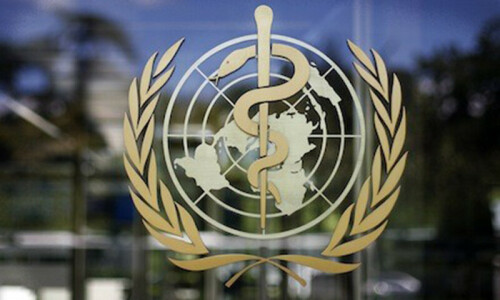ISLAMABAD: Short-term inflation, based on the Sensitive Price Index (SPI), rose to 44.61 per cent year-on-year for the week ended on April 13, according to data released by the Pakistan Bureau of Statistics (PBS) on Friday.
On a week-on-week basis, the SPI eased by 0.60pc. However, food items are getting costlier, particularly fruits, potatoes, onions, chicken, meat, eggs and cooking oil in the wake of the Ramazan-related demand spiral.
On a year-on-year basis, weekly inflation has stayed above 40pc since late February. However, after hitting a record high of 46.7pc in the week ending March 22, it has slightly eased in the previous three weeks.
The retail price of sugar surged to Rs130 per kg in markets after the government allowed its export under pressure from mill owners and politicians sitting in the PDM government.
At the same time, the price of 20kg flour rose to Rs3,400 in markets. A similar trend was seen in the prices of cooking oil and vegetable ghee in recent weeks.
Out of 51 items in the SPI basket, prices of 26 items soared while those of 09 items decreased. However, the rates of 16 items remained unchanged.
During the week under review, the items whose prices increased the most over the same week a year ago were wheat flour (126.09pc), gas charges for Q1 (108.38pc), diesel (102.84pc), eggs (99.37pc), tea Lipton (97.63pc), bananas (90.18pc), potatoes (87.18pc), rice basmati broken (84.46pc), rice Irri-6/9 (81.31pc), petrol (81.17pc), pulse moong (67.43pc), pulse mash (58.54pc) and bread plain (55.36pc).
On a week-on-week basis, the biggest change was observed in the prices of potatoes (8.59pc), LPG (4.47pc), eggs (2.65pc), shirting (2.39pc), chicken (2.19pc), georgette (2.10pc), washing soap (1.83pc), bananas (1.64pc), pulse mash (1.45pc), gur (1.25pc) and cooked beef (1.15pc).
Products whose prices saw the highest decline over the previous week were tomatoes (22.43pc), onions (15.85pc), wheat flour (2.75pc), garlic (1.29pc), pulse gram (0.82pc), pulse moong (0.35pc), mustard oil (0.09pc), electricity charges for Q1 (4.95pc) and firewood (0.09pc).
The government has been taking harsh measures — hikes in fuel and power tariffs, withdrawal of subsidies, market-based exchange rate and higher taxation — under the International Monetary Fund programme to generate revenue for bridging the fiscal deficit, which may result in slow economic growth and higher inflation in coming months.
The increase in the SBP policy rate to 21pc, sales tax from 17pc to 18pc on most items and 25pc on more than 800 imported food and non-food items will further increase retail prices of consumer goods.
Published in Dawn, April 15th, 2023













































